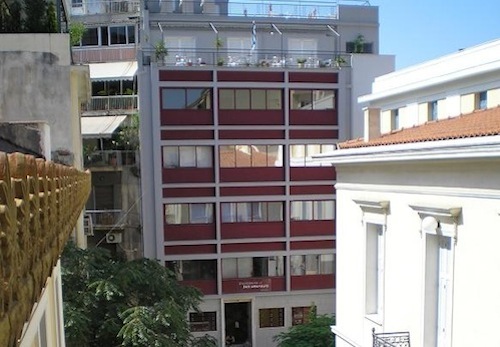A week ago, on April 22, US Ambassador in Athens Daniel Bennett-Smith, in an interview with state news agency AMNA stressed that “we want to see more American investments in Greece,” noting his hope “that Americans will play an important role in both in privatisations and in other investments here.” This has been a clear statement by the US envoy towards the Greek government to look further west when it is considering investors or developmental co-operations. During the crisis years and after the Arab Spring movements, US interests in the region have been made quite apparent to Greeks, who, unfortunately spend more time hating Merkel than exploring fruitful ways to look at the future.
Two days later, on April 24, in an emailed statement to University of Indianapolis, Athens (UIndy Athens), newly appointed President of University of Indianapolis (USA) made known to faculty, staff and students his decision to “discontinue all undergraduate programs and most graduate programs on the campus effective after August 31 of this year.” This decision, practically means cutting down almost two dozen undergraduate and a series of postgraduate programmes, firing staff and full time faculty and more importantly, troubling students who will be forced to think different alternatives (one of which is migrating to Indiana to finish their studies).
Besides the entrepreneurial parametre, which usually has to do with revenues and expenses, liquidity and accounts receivables, the decision to terminate most of the activity of the one and only fully fledged American subsidiary in the Greek tertiary education market, especially this period, seems strange, or to put it mildly, not-so-well-thought of.
Why this decision is wrong and why especially this period? Three main reasons:
First, strategically, any effort to achieve growth in the long term will rely on vast improvements in the Greek education sector, primarily in the tertiary field, matching expertise with market needs. US and UK academic institutions, especially via organised subsidiary units could lead the effort, facilitating also corporate links with different educational fields.
Second, due to its geopolitical character, which, despite the crisis, remains strong, Greece is a political, economic and cultural meeting point of three continents. Just like Cosco managed to position itself as a global transport hub, innovative and far- reaching strategic planning could make established institutions to act as intellectual pillars of the new Greek economy, exploring opportunities for excellence not only in the academia but also in real life economy and entrepreneurship.
Third, after three years of crisis, foreign educational institutions with strong ties to the community is a rare commodity in Greece. In his inaugural speech, the new (Greek-American) President of UoI, referring to the values of the institution said: “our education will always reflect our commitment to community by tying the complex problems of society to the exercises in our classrooms.” Well, UIndy Athens is doing just that, connecting students with two key and very timely intellectual parametres: generic academic perspectives and the real pulse of current economic, social and political battlefield.
Moreover, hosting students from many different countries is a true challenge for all academic institutions, especially in times of economic insecurity and increased social unrest. This is something UIndy Athens has learned to do many years now, exploring the power of the country that has the ability to “Hellenise” foreigners, sometimes for life. Fruitful debates and free-spirited dialogue make this happen; for instance, Ambassadors in Greece, who take turns lecturing the international crowd of UIndy students, find themselves having to answer some harsh and disarming questions on their countries’ international policies, posed by some really informed youngsters.
Although I am not familiar with particular figures, I take it for granted that Greek economic crisis has affected sustainability figures even of non-for-profit institutions. Also, it is widely acknowledged in the country that traditional managerial weaknesses have inflated problems and institutional effectiveness in an era of rapid change. Finally, if asked, I would strongly argue that UIndy Athens needs to adapt its strategy, focusing on digital communications as well as invest on niche intellectual fields that are directly connected to Greece’s current and future state. Cross-discipline approaches and progressive academic angles can act as a driving force towards growth, in a period in which Greece is putting an effort to reinvent itself.
Therefore, investing a certain amount of money on aforementioned strategic priorities would make much more sense than spending a lot more to dismantle an institution of great potential.
Dr. Demetris Kamaras is the Editor of dailyGreece.net and alyunaniya.com and Assistant Professor (Journalism) at UIndy Athens. This has been a personal but essential note, which concerns Greek private tertiary education as a whole.

